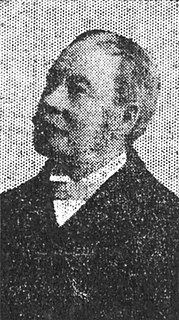A Quote by Giacomo Casanova
Heart and head are the constituent parts of character; temperament has almost nothing to do with it, and, therefore, character is dependent upon education, and is susceptible of being corrected and improved.
Related Quotes
Reputation is seeming; character is being. Reputation is manufactured; character is grown. Reputation is your photograph; There is a vast difference between character and reputation. Reputation is what men think we are; character is what God knows us to be. Reputation is seeming; character is being. Reputation is the breath of men; character is the inbreathing of the eternal God. One may for a time have a good reputation and a bad character, or the reverse ; but not for long.
I'm not playing a character. What I'm doing though is taking the worst, most shameful, peculiar, or troubling aspects of my personality. So there are elements of me that are not there. The happy version of me is not really in the show, because there's nothing funny about being happy. So it's more like I'm poaching on the funniest parts of me rather than actually creating some other character.
What interests me when I'm writing is being able to crawl into a character's head and speak from his or her mouth. It's not pulling the strings on a marionette, it's not playing ventriloquist, and it's not mimicry. It's about inhabiting a character, and, at the same time, being totally unaware of what you've become.
When I'm writing, I try to have the mask of my character on as I'm walking through the world. When I'm not at my desk, the rest of the time, I try to stay in that character and see the world the way that character would It's almost like method acting in a way — keeping the character close the way the actor keeps a script close and always tries to be in character.
One of the great myths in America is that sports build character. They can and they should. Indeed, sports may be the perfect venue in which to build character. But sports don't build character unless a coach possesses character and intentionally teaches it. Sports can team with ethics and character and spirituality; virtuous coaching can integrate the body with the heart, the mind, and the soul.



































